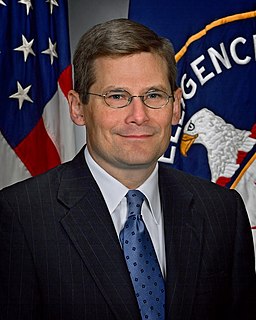A Quote by Tom Cotton
The NSA is not listening to anyone's phone calls. They're not reading any Americans' e-mails. They're collecting simply the data that your phone company already has, and which you don't have a reasonable expectation of privacy, so they can search that data quickly in the event of a terrorist plot.
Related Quotes
Every day, I absorb countless data bits through emails, phone calls, and articles; process the data; and transmit back new bits through more emails, phone calls, and articles. I don't really know where I fit into the great scheme of things and how my bits of data connect with the bits produced by billions of other humans and computers.
When I was a kid, phone calls were a premium commodity; only the very coolest kids had a phone line of their own, and long-distance phone calls were made after eleven, when the rates went down, unless you were flamboyant with your spending. Then phone calls became as cheap as dirt and as constant as rain, and I was on the phone all the time.
Snowden grants that NSA employees by and large believe in their mission and trust the agency to handle the secrets it takes from ordinary people - deliberately, in the case of bulk records collection, and 'incidentally,' when the content of American phone calls and e-mails are swept into NSA systems along with foreign targets.
In the U.S., you even lose legal rights if you store your data in a company's machines instead of your own. The police need to present you with a search warrant to get your data from you; but if they are stored in a company's server, the police can get it without showing you anything. They may not even have to give the company a search warrant.
We face two overlapping challenges. The first concerns real-time court-ordered interception of what we call 'data in motion,' such as phone calls, e-mail, and live chat sessions. The second challenge concerns court-ordered access to data stored on our devices, such as e-mail, text messages, photos, and videos - or what we call 'data at rest.'






























